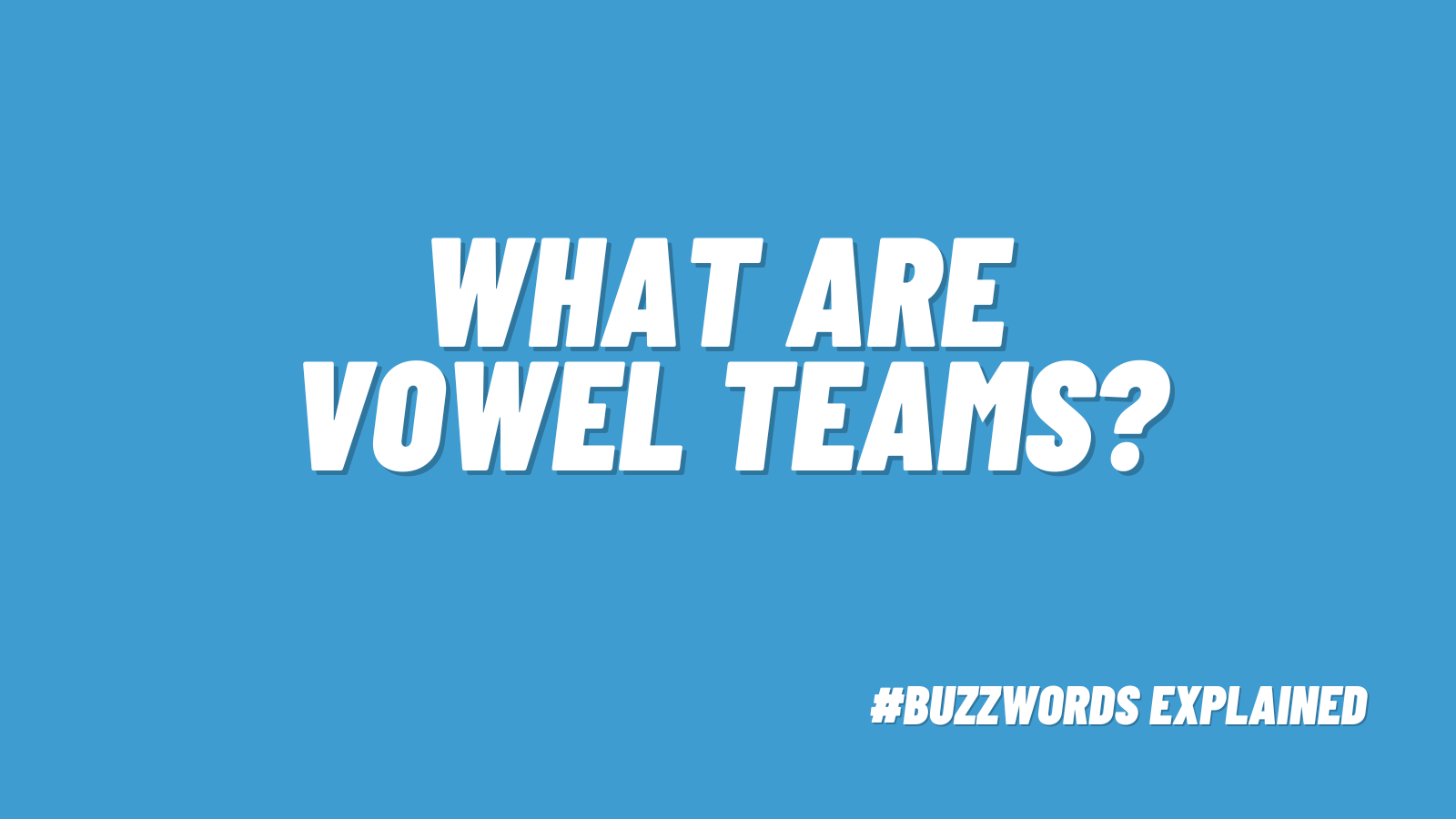Education
What are Vowel Teams? Examples and Teaching Ideas
[ad_1]
Since we now know the importance of teaching phonics explicitly and systemically, it’s easier than ever to find resources on the science of reading to implement effective literacy instruction in your classroom. Still, it’s important to become experts in learning about the definitions of different types of words and patterns. Vowel teams are just one of these important elements. But just what is a vowel team? Read on to find out more about this type of word pattern and how to incorporate activities and games into your instruction to boost proficiency in reading and spelling. After all, teacher knowledge about language and how it works makes a huge difference in how much students can learn.
Jump to:
What is a vowel team?
Vowel teams work just like the name suggests, as a team. So two or more letters work together to make a vowel sound. For example, “ai” in the word “rain” works as one vowel sound. The vowel sounds can be short, long, or make a diphthong sound. Diphthongs are types of vowel teams that make a unique sound. These types are known as sliding sounds because the first sound slides into the next. Your mouth even changes position as it says the sound. Since they are new sounds, they deserve some extra attention during instruction.
All of these patterns represent the vowel team syllable type, one of the six syllable types we use in English. It’s important to learn about them because there are so many different ways to make the same sound. Check out the catchy video below to learn more about the definition and see some examples. Students will love learning about different types of words by watching these super fun song parodies.
With over 200 distinct graphemes (letters or groups of letters making a sound) in the English language, it might make teaching letter-sound rules to students feel like an impossible task. How will they ever learn them all? The good news is there are so many predictable things about English we can teach students to make reading and writing easier for them.
Some rules are helpful when learning how to read vowel teams, while others can be misleading. You may have heard the phrase “Two vowels go walking, first one does the talking” as a way to teach which sounds vowel teams make. While this may be true for some vowel patterns, it’s not the case for many others. Watch this video to learn why this rule is false 60% of the time!
Predictable Vowel Teams
Many of the vowel patterns in English are predictable, meaning that they almost always make the sound we expect them to make. This is very helpful for teaching students how to read unknown words. For example, the vowel team “ay” makes the long “a” sound. Reading a word like “play” becomes easier when students can apply their knowledge of the “ay” vowel team and read the word quickly. We can also predict where the vowel team shows up in a word, which is a very beneficial strategy for spelling. “Ay” always comes at the end of a word, whereas the “ai” pattern, which also makes the long “a” sound, always comes at beginning or middle of a word. Here are examples of the predictable vowel teams:
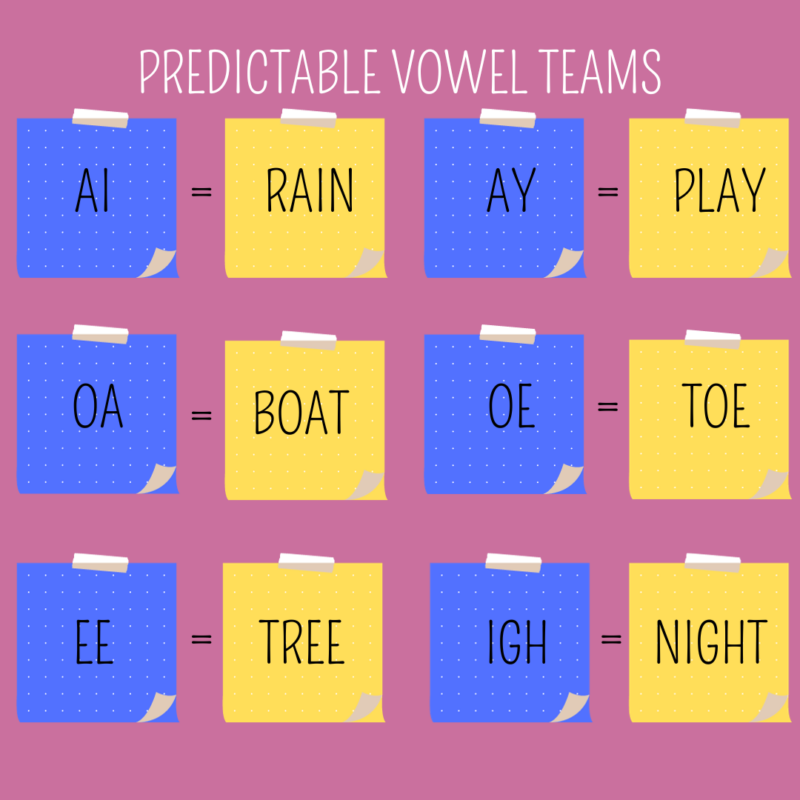
Unpredictable Vowel Teams
Some vowel teams make different sounds and we can’t generalize the sounds these phonograms, or letter patterns, make. Here are some examples:
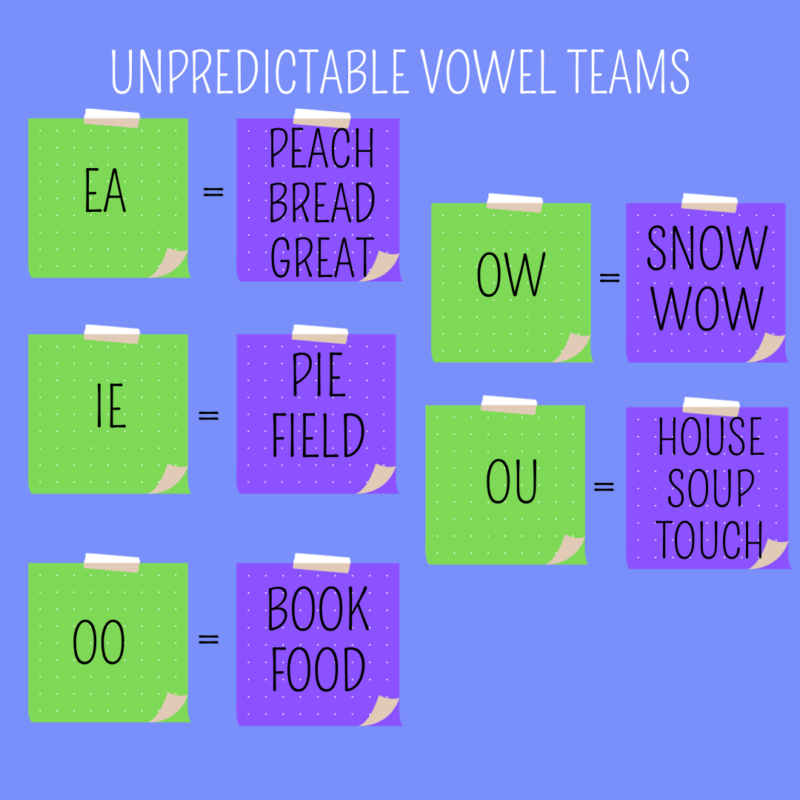
Because they can make varying sounds in different words, we have to explicitly teach these distinctions and point them out to students often when they are reading and spelling.
Vowel Team Words
There are 24 vowel teams in all. Here is a list of all of them plus examples of each pattern.
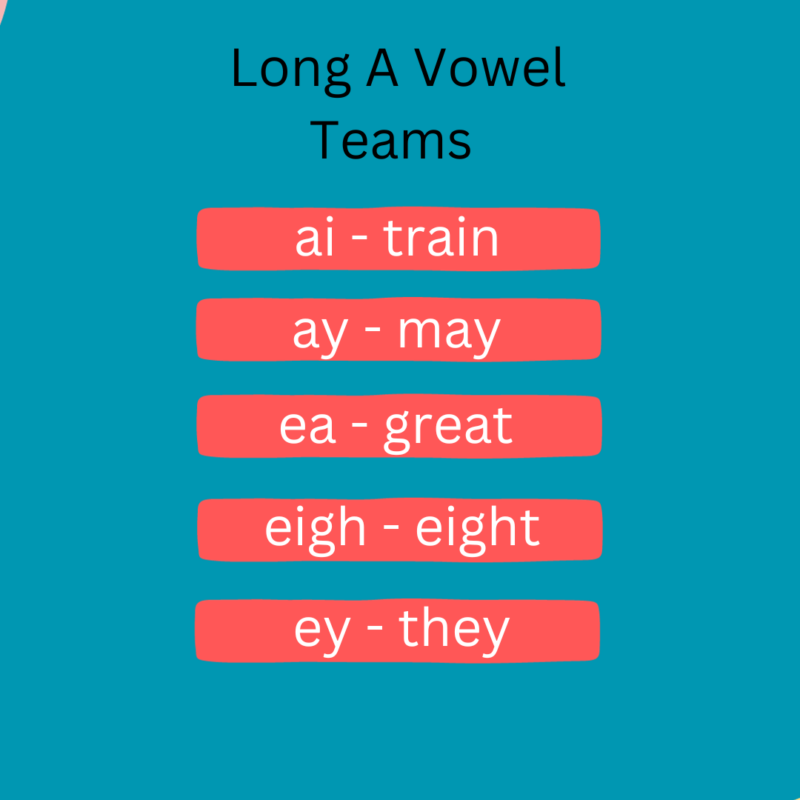
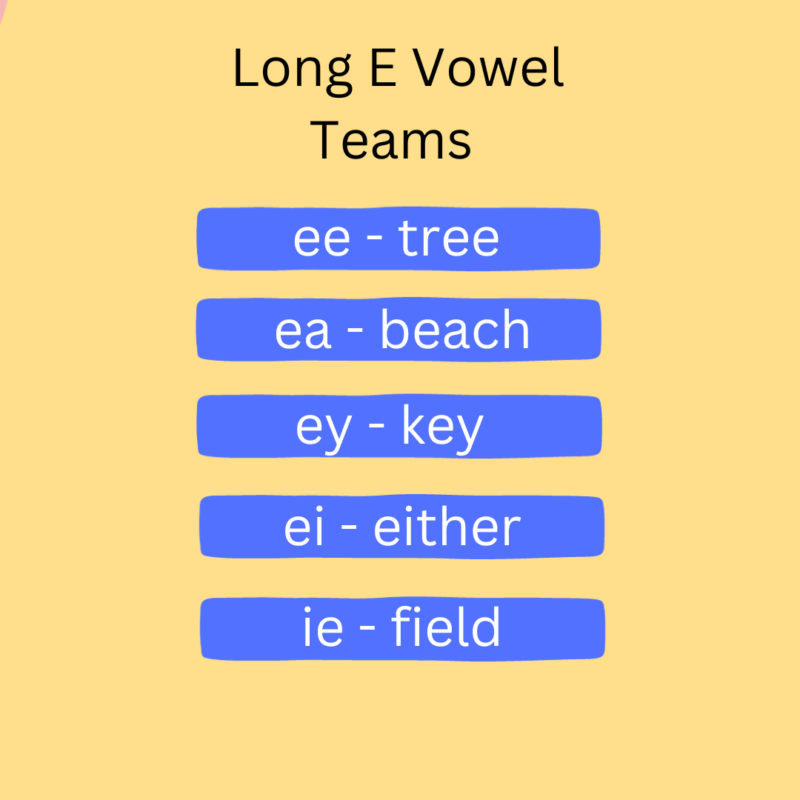
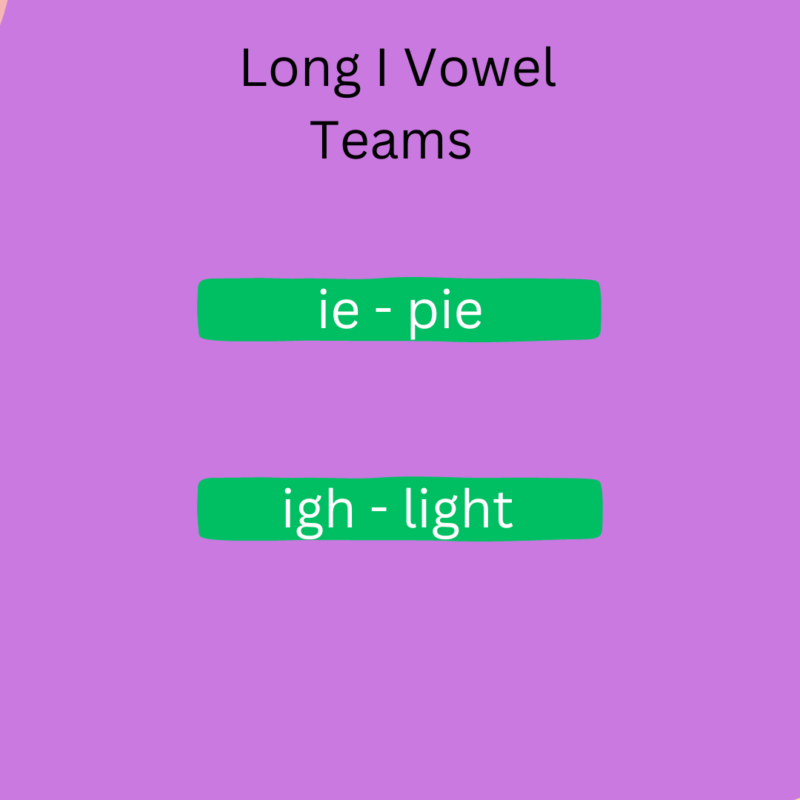
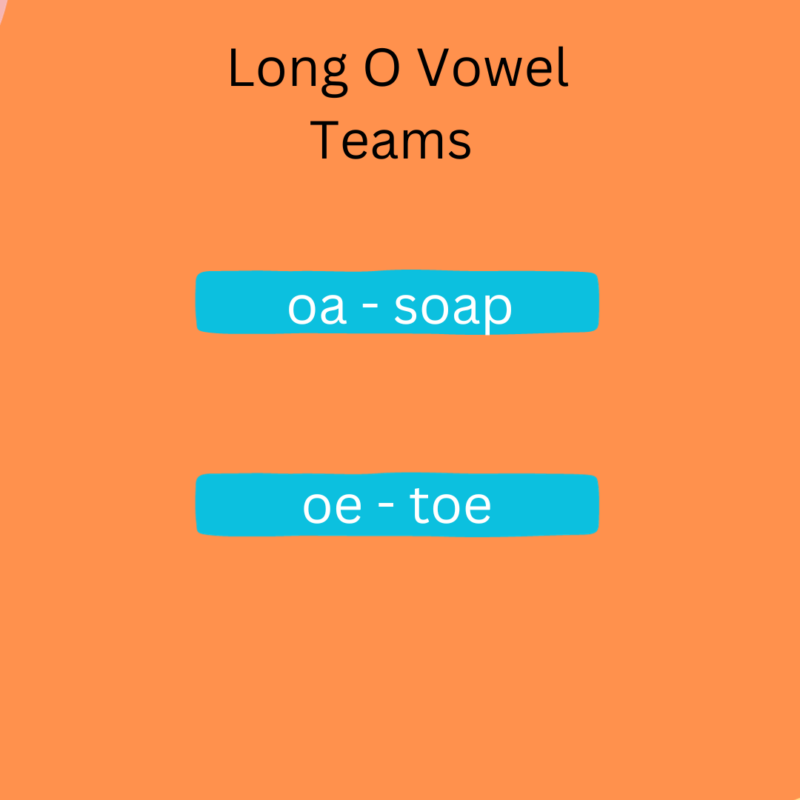
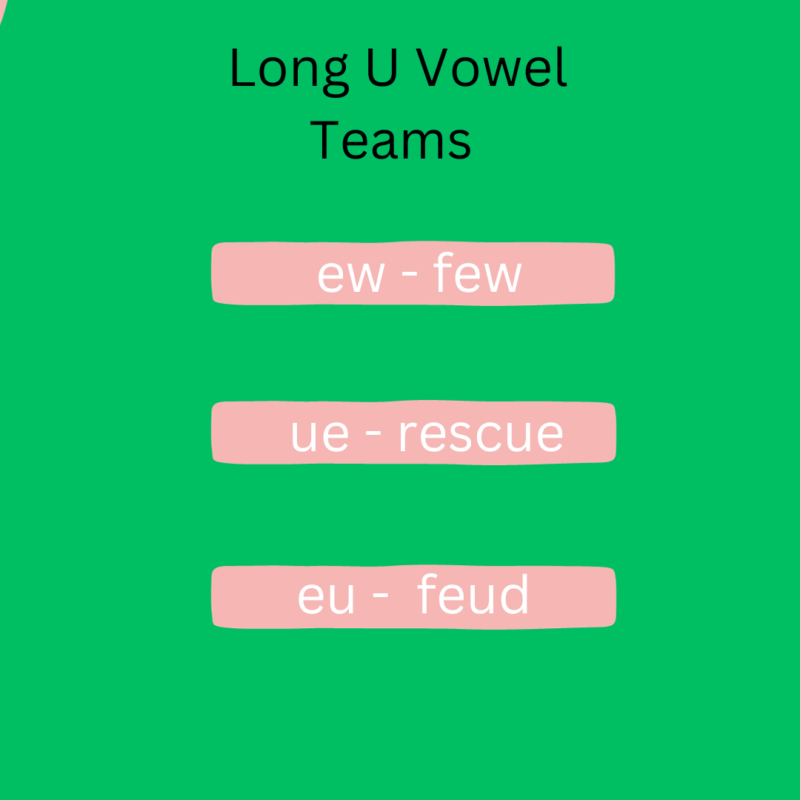
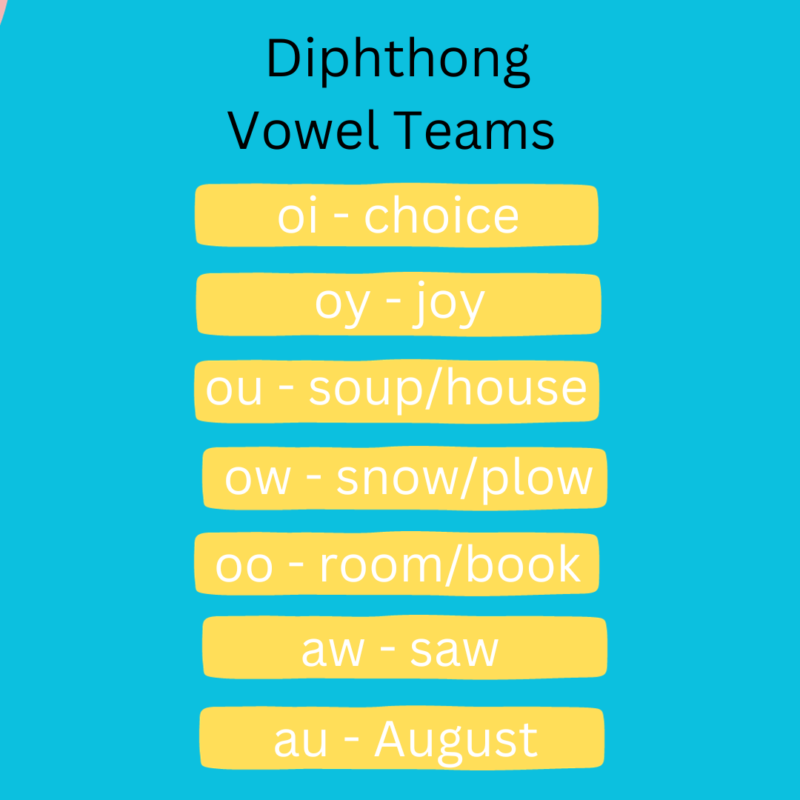
Vowel Team Anchor Charts
Check out these anchor charts for some inspiration! The more you can make these patterns visible and explicitly teach each one in your instruction, the more they will click for students. In addition, we are teaching students these skills so they will transfer their knowledge of these patterns to their spelling and reading independently.
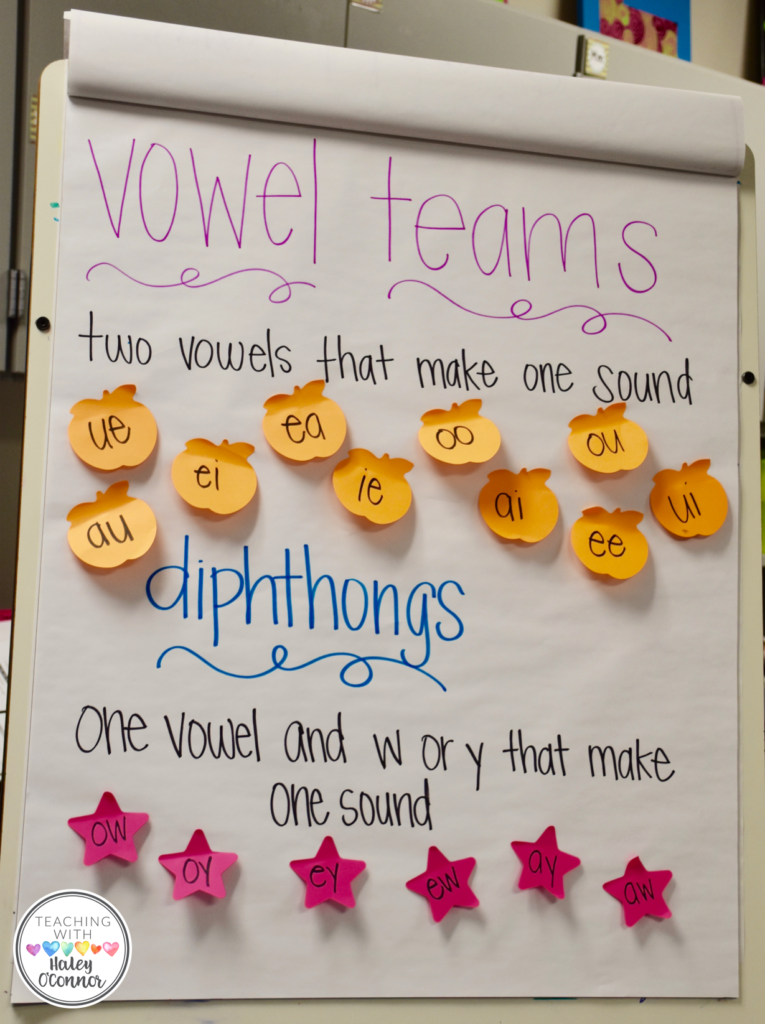
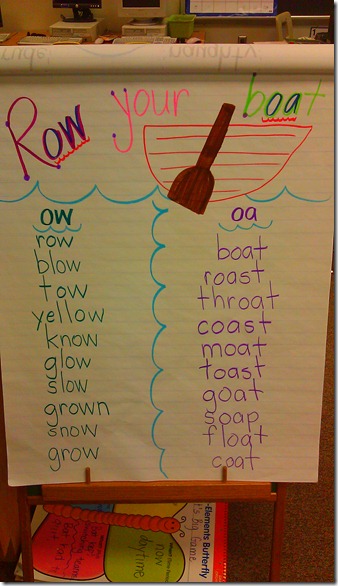
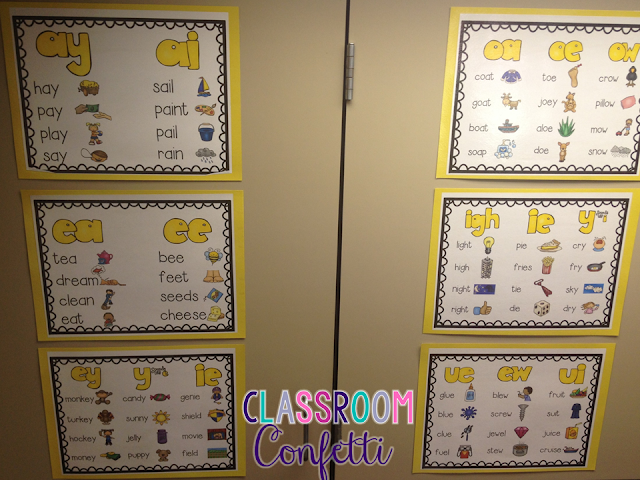
Vowel Team Activities
There are so many different activities you can use to increase fluency and understanding of all the vowel teams. These types of words easily lend themselves to a variety of games and activities. Basically, the more repetition, the better! This is especially true for unpredictable vowel sounds and diphthongs.
Find phonograms in text
To boost fluency and increase automaticity with these word patterns, students can read decodable texts with plenty of vowel team patterns. Since they can be a little overwhelming, make sure to only focus on one or two phonograms at a time. UFLI has an extensive library of engaging decodable texts, including many with vowel teams. Students can also highlight the patterns with a marker or colored pencil and practice reading with a partner. Bonus: Have them draw a picture of the word in the blank space, which is a great way to assess comprehension!
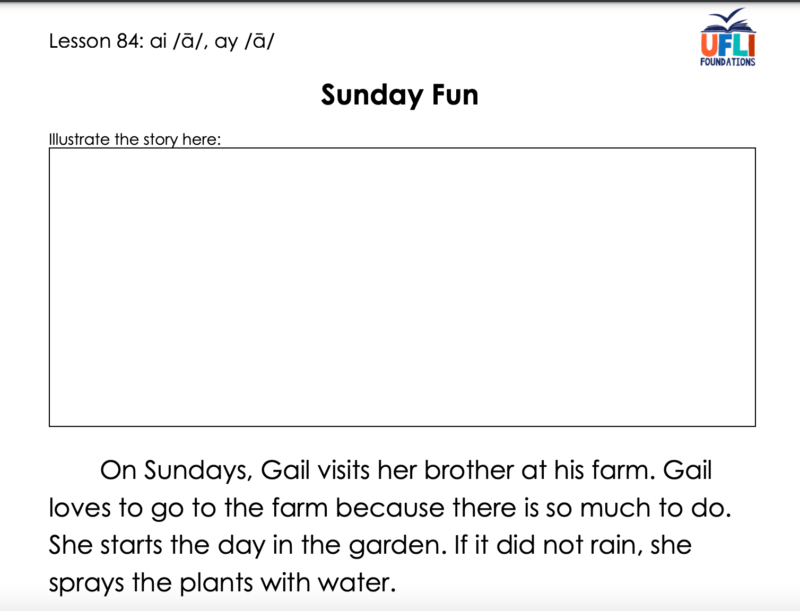
Learn more: Long Vowel Teams Unit Resources at UFLI
Word sort
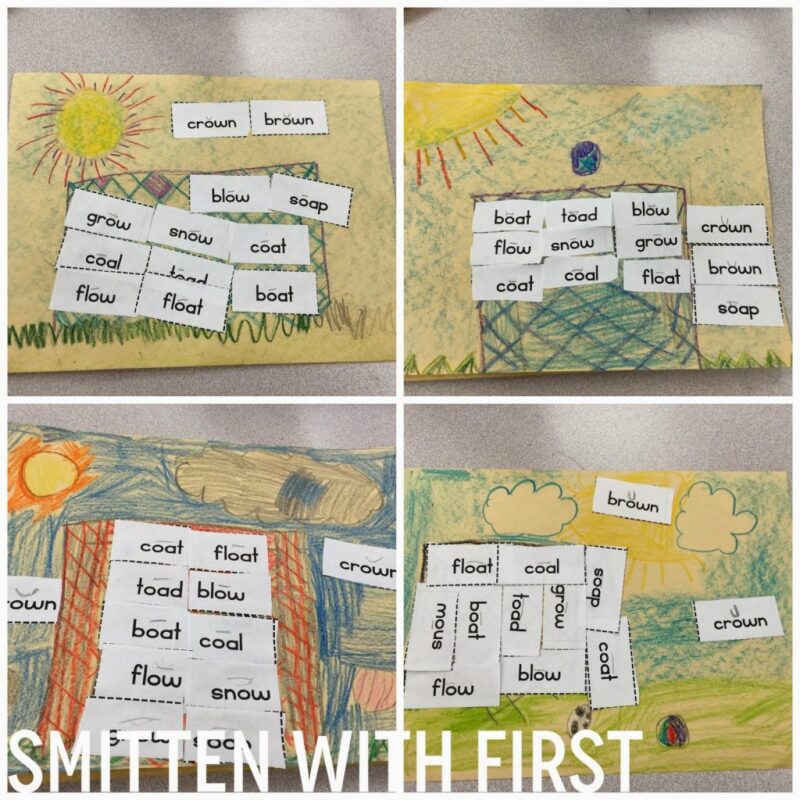
For a unique way to sort words by their sounds to distinguish between them, check out this fun soccer sort. Glue words inside the goal if the vowel pattern makes the long “o” sound and put them outside the goal if they don’t.
Learn more: Vowel Team Freebies at Smitten With First
Build words with vowel teams
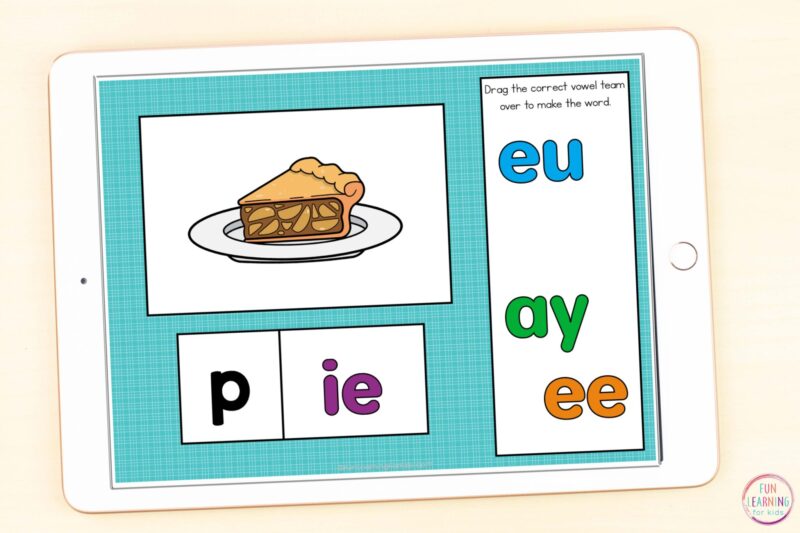
Practice building words with different vowel patterns using magnetic boards or use an online resource to practice blending.
Learn more: Digital Vowel Teams Word-Building Phonics Activity at Fun Learning for Kids
Spell and sort
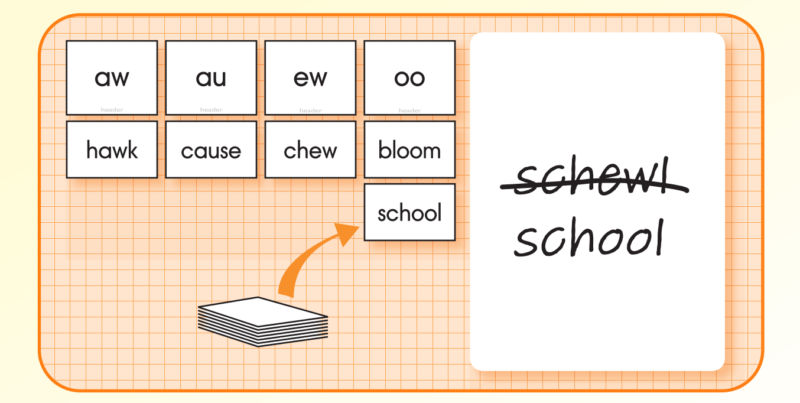
Take turns reading words and guessing the correct spelling based on the vowel sound. Test out the spelling to see if it looks right.
As an extension activity, divide up a paper into columns with different vowel patterns listed at the top. Call out words with familiar phonograms and have students figure out which column they belong in.
Learn more: Spell and Sort at Florida Center for Reading Research
Read aloud
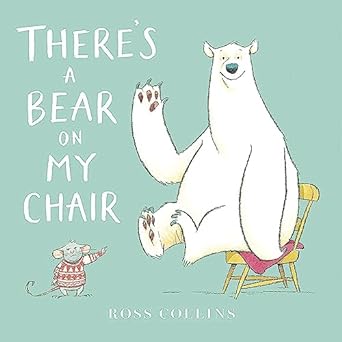
Reading aloud is always a good idea. Find picture books with lots of vowel phonograms and ask students to notice which words they hear or see with those patterns. Plus, check out this comprehensive list of read-alouds for any vowel sound!
Buy it: There’s a Bear on My Chair at Amazon
Vowel Team Games
Board games
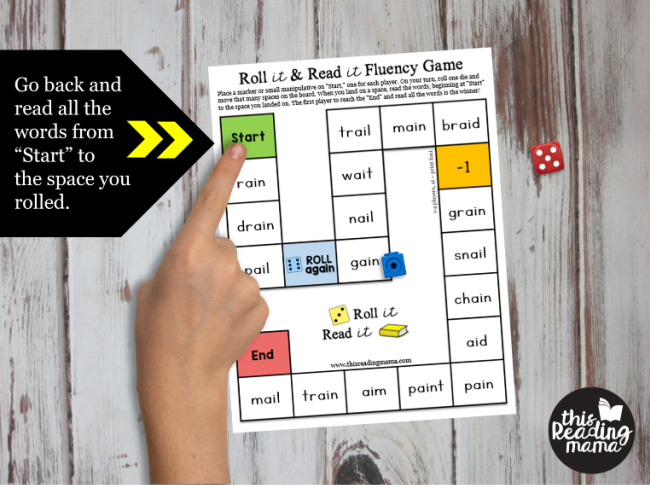
Have some fun reading words in these fun board games while boosting accuracy and automaticity at the same time.
Learn more: Free Vowel Team Fluency Games at This Reading Mama
Go Fish
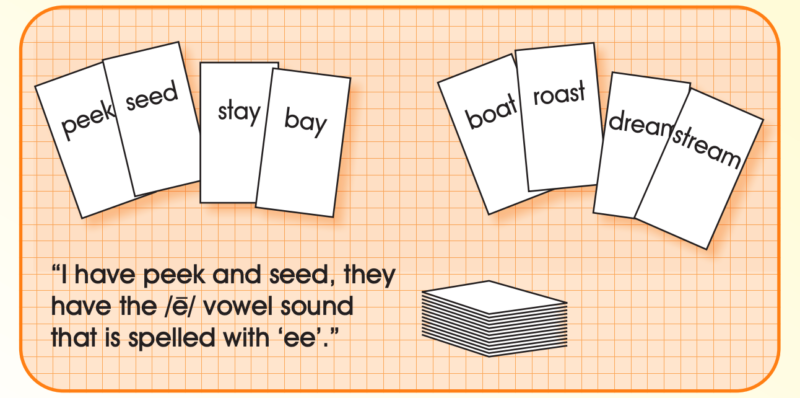
Turn the ever-popular game of Go Fish into some extra vowel practice! Find matching patterns and practice saying the sounds they make out loud when you make a match.
Learn more: Fishing for Vowel Digraphs at Florida Center for Reading Research
Four in a Row
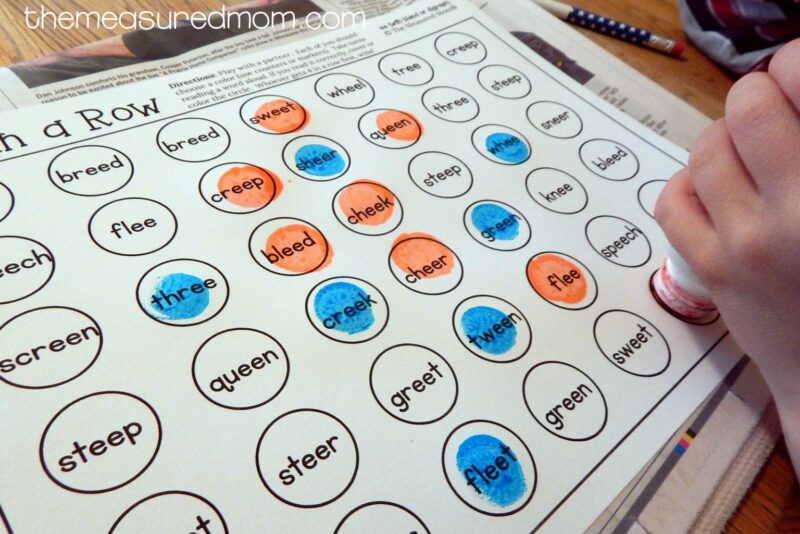
With a partner, see who can fill in four-in-a-row words by reading the long “e” sound correctly. We love how this game can be easily extended for any vowel team and differentiated for any skill.
Learn more: Four-in-a-Row Games for EE Words at The Measured Mom
Want more? Don’t miss: Anchor Charts to Teach Phonics and Blends and Brilliant Reading Activities That Make Learning Irresistible.
Plus check out How To Set Up a Sound Wall in Your Classroom.
For more articles like this, be sure to subscribe to our newsletters.
[ad_2]
Source link
Related posts:


